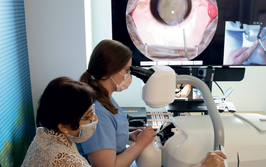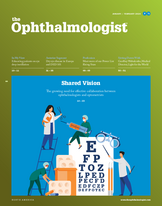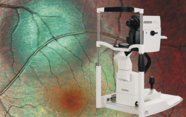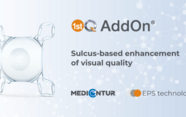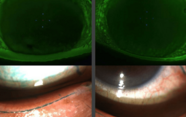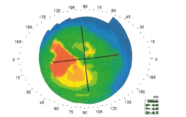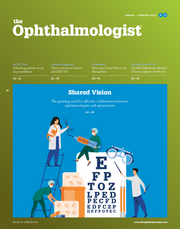The Smartphone Adaptor with a Social Mission
Peek Retina is an adaptor for your smartphone that promises easy and high-quality fundoscopy – no matter if you’re in Scotland or sub-Saharan Africa
You might have seen the inspirational TED presentation by Peek co-founder, ophthalmologist and Clinical Lecturer at the London School of Hygiene & Tropical Medicine, Andrew Bastawrous (bit.ly/peekvision). He talked about how Peek – the Portable Eye Examination Kit – has transformed ocular health screening in rural Kenya. If you’re not aware, Peek is a set of freely available mobile apps that can enable a non-expert with a smartphone and minimal training to perform a whole suite of eye tests – from tumbling E visual acuity tests, to eye tracking, cataract assessment and, with the help of the Peek Retina adaptor (Figure 1), Fundoscopic images of the retina. The data infrastructure that partners the app enables images and test results to be uploaded to the cloud and assessed by ophthalmologists anywhere in the world. The app uses the smartphone GPS functionality to record the coordinates where the assessments were performed, meaning that the data can be used for both epidemiological studies and patient follow-up, which isn’t always easy in rural sub-Saharan Africa. Mario Giardini, Peek co-founder and Lecturer in Digital Health at University of Strathclyde, explained, “At its core, the Peek connects patients with doctors – and we are proud to produce the tools to do that.”
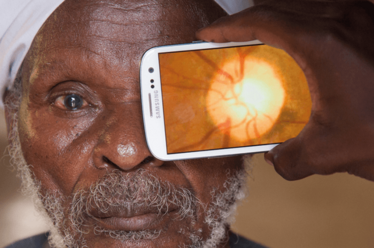
Figure 1. The Peek Retina smartphone adaptor in action.
The optics of Peek Retina have been refined “to a point where the autofocus features of the smartphone camera completely mitigate the complex focusing mechanisms that you’re used to with indirect ophthalmoscopy – months of mucking about in medical school learning how to use it properly have been reduce to one minute,” according to fellow Peek co-founder and ophthalmologist at the Glasgow Centre for Ophthalmic Research in Scotland, Iain Livingstone.
Giardini, the electronic and optical engineer who designed the optics and the casing, explained that “the device is now in its sixth generation and has been used to screen over 2,000 people in the field”. Giardini described how very robust Peek Retina is, as “every device that’s gone into the field works as well today as it did when it was new”.
Perhaps the area where Peek Retina distinguishes itself the most is that it has undergone extensive clinical validation. Livingstone described the process, which involved comparing pictures from standard diabetic retinal screening cameras with those from Peek in a large cohort of patients. “The images were randomized and presented to two expert readers at Moorfields Eye Hospital, who evaluated a number of optic nerve head parameters including cup to disc ratio; then, we used the methods described by Bland and Altman to compare the two imaging methods. We’re getting really good results, and Andrew is due to publish them very soon”.
Though Peek Retina is a mature design and works well, it’s currently made by high-quality 3D printing – great for field evaluation, but a process that doesn’t scale to production volumes – although there’s certainly great demand. Bastawrous said “We’ve been getting huge levels of demand – over 180 countries have requested to use Peek in their eyecare programs. We’ve got to the point where we need to find a sustainable way of delivering Peek to people.”
Perhaps surprisingly, Peek Vision have tuned to the crowdfunding website Indiegogo to fund the commercialization of Peek Retina. We asked Andrew Bastawrous: why?
“We’ve had various options for people investing in what we’re doing, but it usually comes at a cost: people want to invest with a focus on profit,” he says. “We’re very focused on having a social impact, and so by choosing a crowdfunding campaign, we can have the social mission of what we are doing as our primary focus, without having to give away control.”
www.supportpeek.com
I spent seven years as a medical writer, writing primary and review manuscripts, congress presentations and marketing materials for numerous – and mostly German – pharmaceutical companies. Prior to my adventures in medical communications, I was a Wellcome Trust PhD student at the University of Edinburgh.
